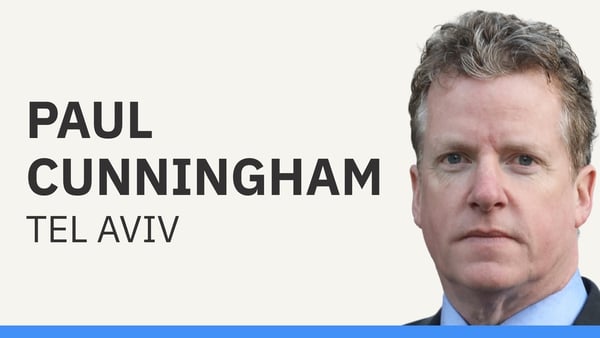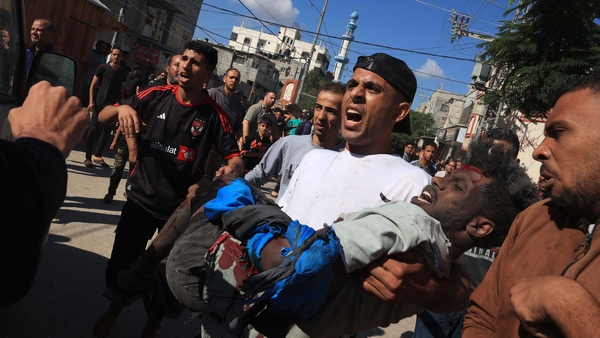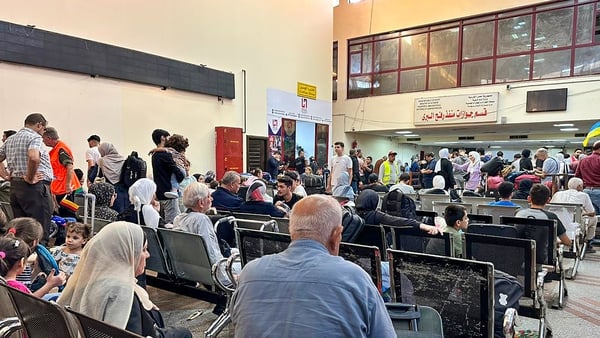A deal to free some of the hostages held in Gaza by Hamas has been edging closer.
About 240 hostages were taken during Hamas's surprise attack on Israel on 7 October, which prompted Israel to invade the tiny Palestinian territory to wipe out the Islamist group.
RTÉ correspondent Paul Cunningham reports from Jerusalem on the eight key points on behind-the-scenes negotiations.
The interlocutor
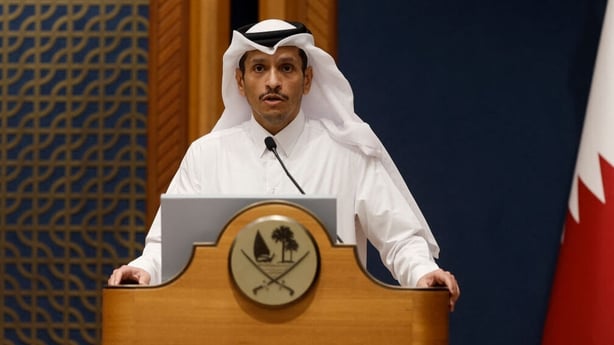
The Gulf State of Qatar was the main broker in securing the release of four hostages held by Hamas in Gaza.
Qatar has influence, given in the past it has provided funding to Hamas and is currently home to some of its political leadership.
Qatar's Prime Minister Sheikh Mohammed Bin Abdulrahman Al-Thani said yesterday that only "very minor obstacles" remain in the way to conclude the deal.
Then again, minor obstacles can become big obstacles and apparent deals can collapse.
What makes this more solid is that the Israeli ambassador to the US Michael Herzog also said last night that he was "hopeful" a deal could be done soon.
A White House official said the "very complicated, very sensitive" negotiations were making progress.
The deal
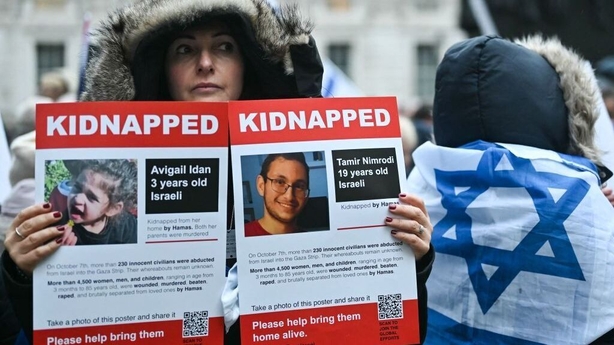
The crux of the deal involves Hamas releasing some hostages in return for some form of pause in the Israeli assault on Gaza.
The number of captives to be released is rumoured to be in the region of 50 people.
It is also believed that perhaps some of the oldest and youngest hostages would be among the first to get out.
It is understood that the pause in Israel's war in Gaza would be in the region of four or five days.
The hitch
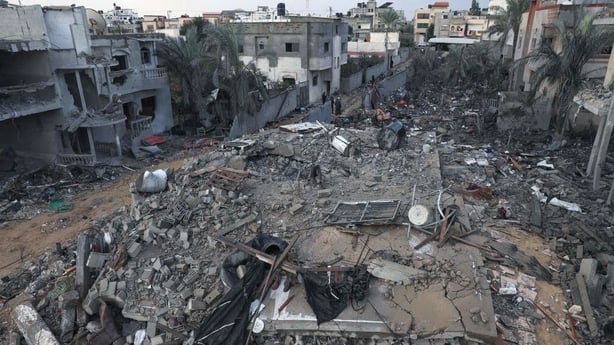
The hitch in getting the deal over the line, it appears, relates to sequencing.
I am told that Israel wants the hostages to be released first and it will then order a pause in hostilities.
Other players involved in the process want the cessation to be called first and then the hostages to be released.
This may appear to be a small matter, but such adversarial positions have the potential to sunder an agreement.
Pressure on the PM
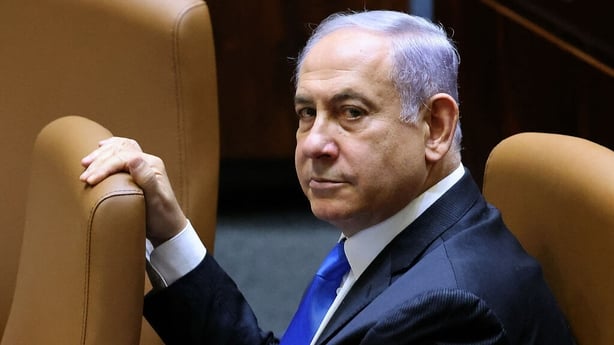
Israeli Prime Minister Benjamin Netanyahu is due to meet the families of the hostages tonight.
It Is expected to be a tense meeting because the families are not convinced that securing the release of their loved ones is the right-wing government's number one priority.
Last week, tens of thousands of Israelis joined the families on their five-day protest walk from Tel Aviv to Jerusalem.
The family members were told by Minister Benny Gantz that the Cabinet's "supreme" priority was securing the release of the more than 240 hostages held by Hamas.
Should a deal for a partial release fall apart because of Israeli government demands on sequencing, the vulnerable Prime Minister could be finished.
What is in the deal for Hamas?
The pause in hostilities will give Hamas some time to reconstitute itself after being pummelled by the Israeli military for weeks.
It will still hold nearly 200 hostages and a process to elicit more concessions, possibly the release of Hamas prisoners in Israeli jails, has now been established.
Emily Hand
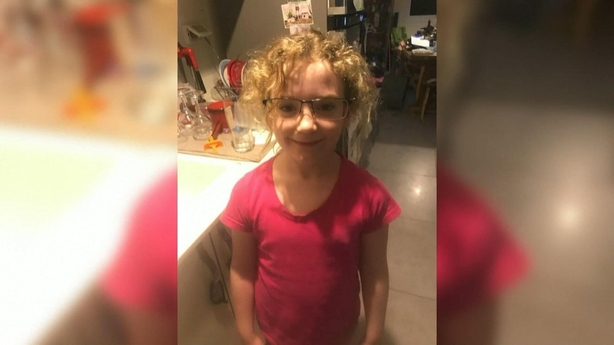
Israeli-Irish girl Emily hand, who turned nine years old last Friday, is believed to be held by Hamas in Gaza.
She was taken hostage along with her friend and her friend's mother on 7 October.
If the rumours are accurate, that children and older people would be released first under any deal, then there must be hope that Emily could be one of that group.
Tánaiste Micheál Martin said in Israel last week that the Irish Government does not have confirmation that Emily is still alive.
The hope has to be is that she is and that the intensive diplomatic efforts from him, Taoiseach Leo Varadkar, President Michael D Higgins and Ireland's embassy staff will pay off.
The pause in hostilities
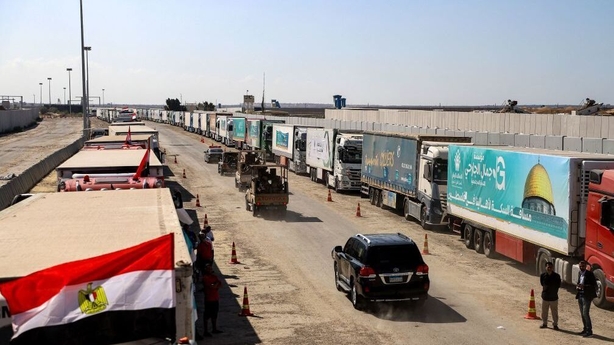
If a deal is struck, and there is a pause in Israel's military campaign in Gaza, a big question is whether there will be unrestricted access for humanitarian organisations to get food, water, medical supplies and fuel into the strip.
Up to this point, Israel has only allowed in marginal amounts of aid.
For example, the war cabinet decided last Friday to allow in two fuel trucks a day to prevent the sewage system from collapsing.
Israeli's stated intention is to move its ground war south.
Its blockade of Gaza, it says, supports that military objective - destroying Hamas.
So there is no guarantee that borders will open up if a ceasefire or a truce is called.
The day after the war ends
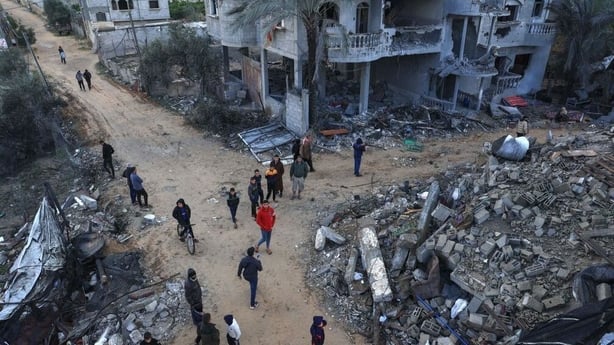
Israel's government seems to be focused on today, rather than on what happens after the war.
Its focus is on tracking the Hamas leadership which it, not unsurprisingly, believes has moved south in the face of the Israeli incursion from the north.
But on the bigger picture, and what happens beyond the bombs and bullets, it is felt that the coalition either does not have the answers, has not considered them or does not want to.
Former Israeli PM Ehud Olmert told Euronews correspondent Shona Murray last week that the moment the war ends, Israel needed to enter into meaningful negotiations with the Palestinian Authority on a two-state solution.
But the government has not revealed any major vision beyond the military objective of destroying Hamas and maintaining some level of control in Gaza so that Hamas does not re-emerge.
The Tánaiste said bluntly last week during his mission to Israel and the West Bank that there is no military solution.
He did not say this, but the implication is clear, in the absence of a political solution, Israel and Palestine will be in locked in a cycle of violence forever more.

